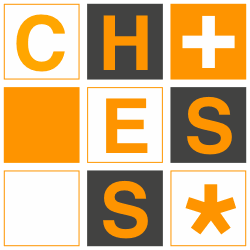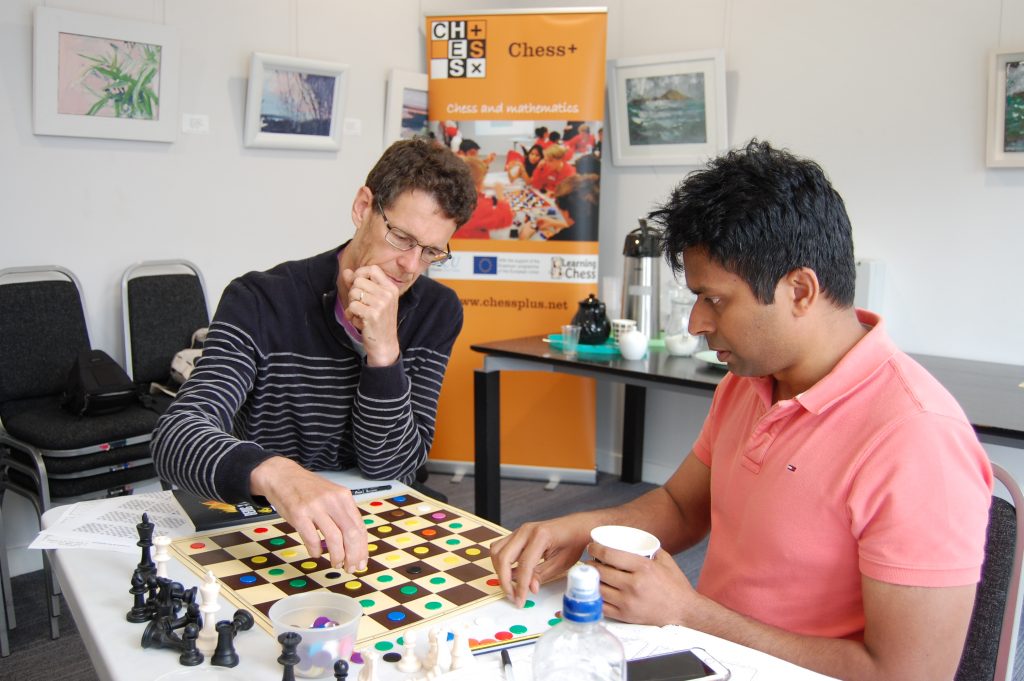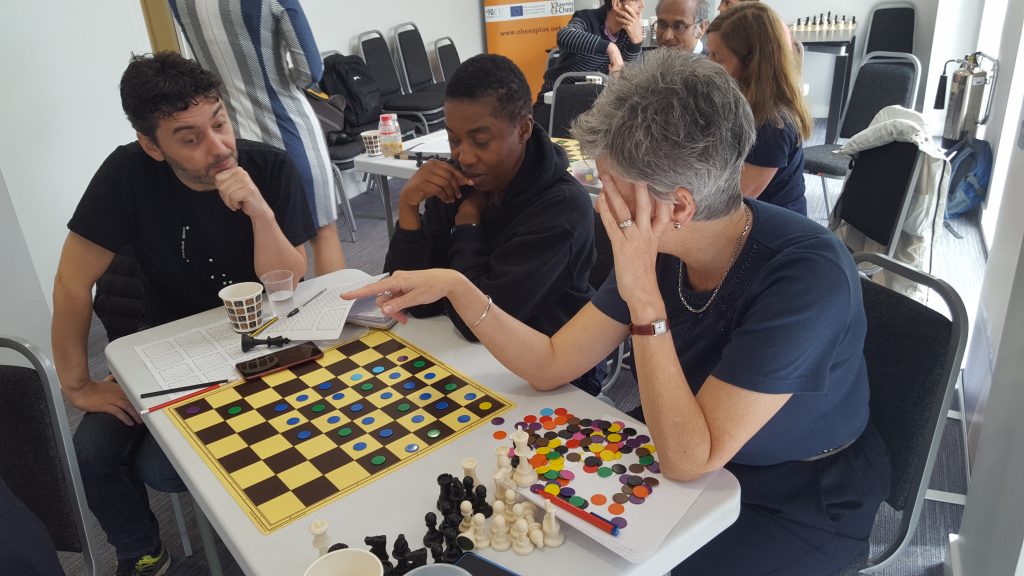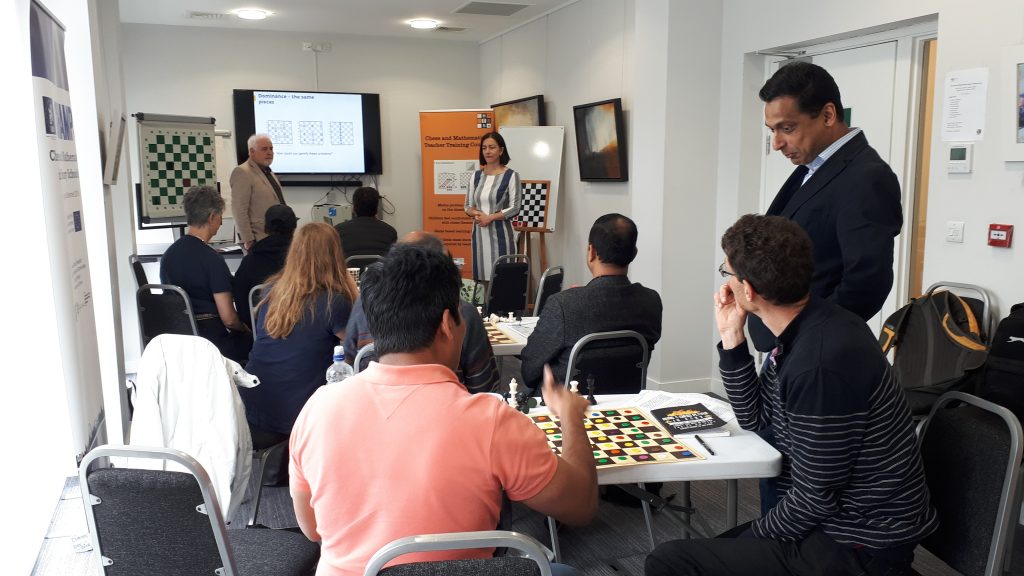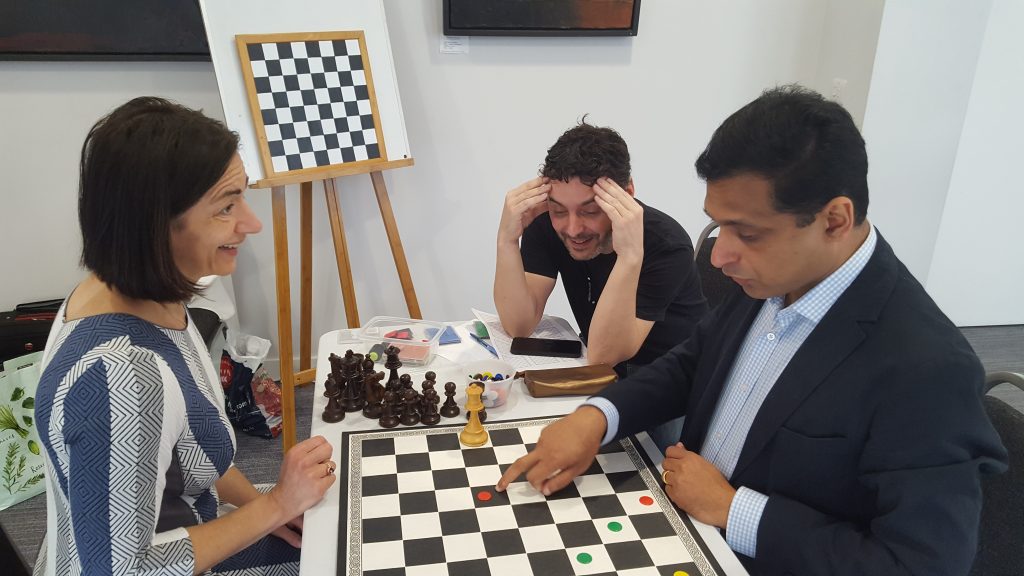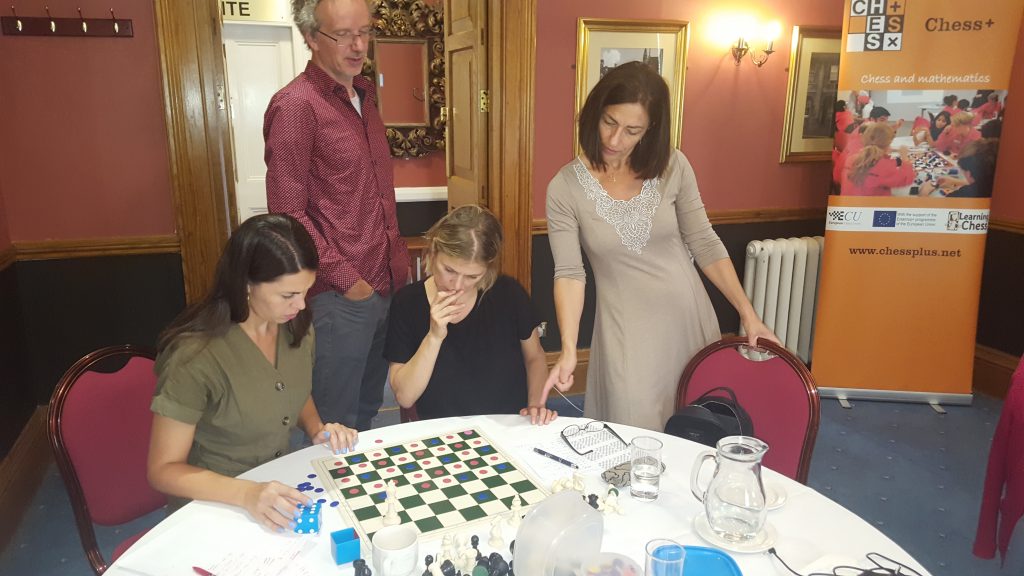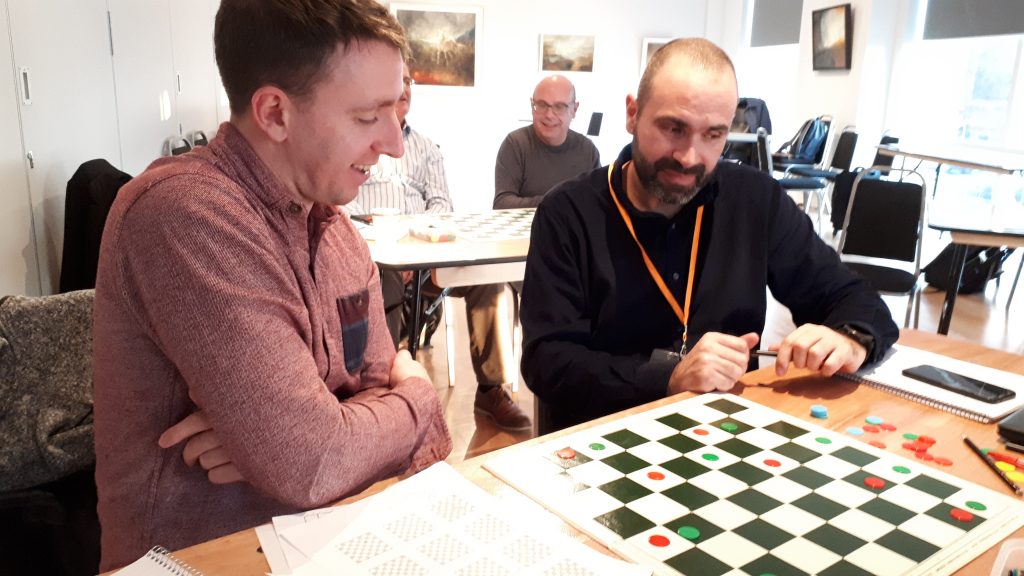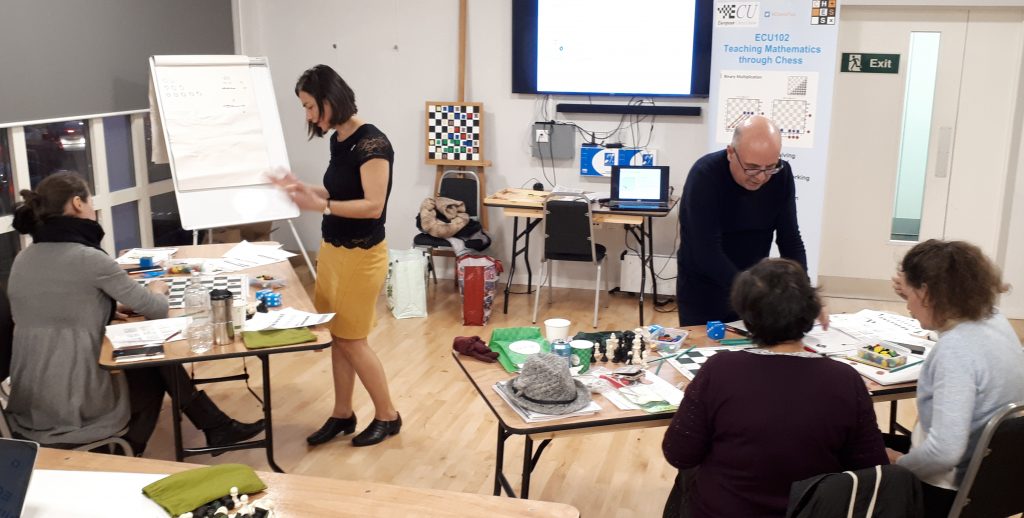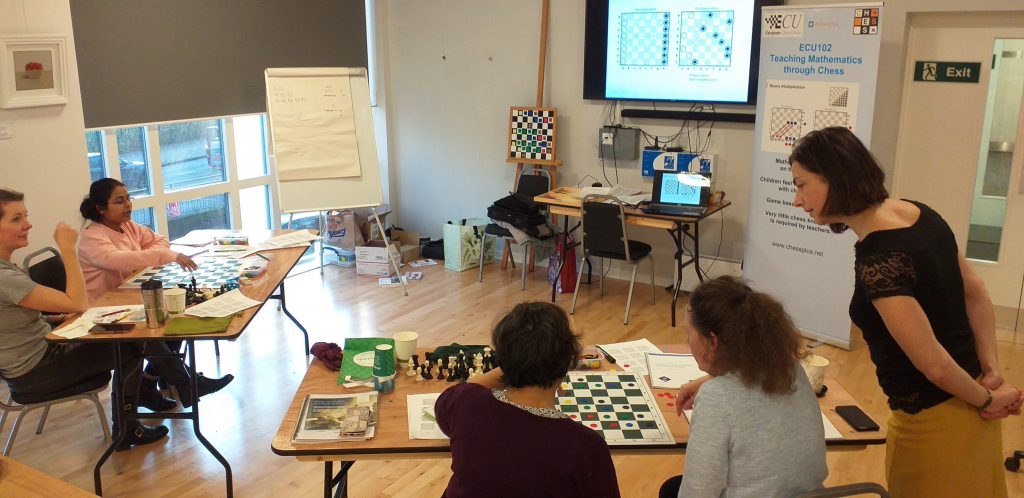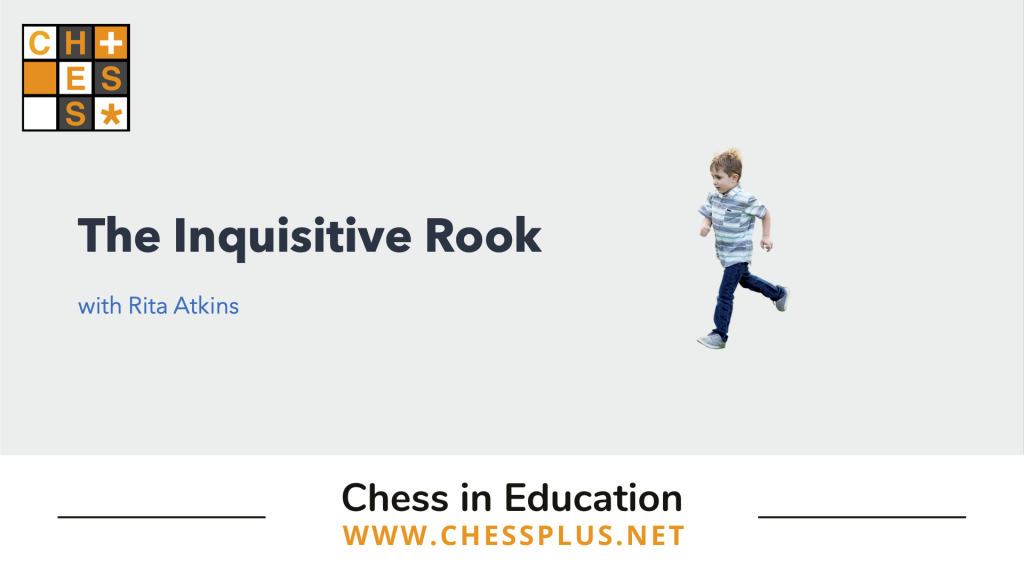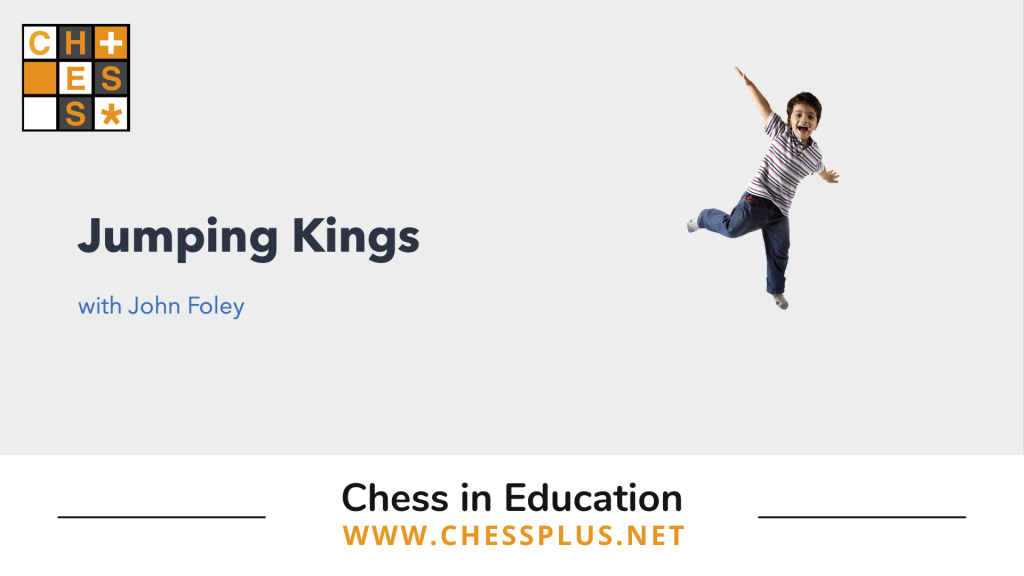Click here to see the upcoming ECU102 Training Courses
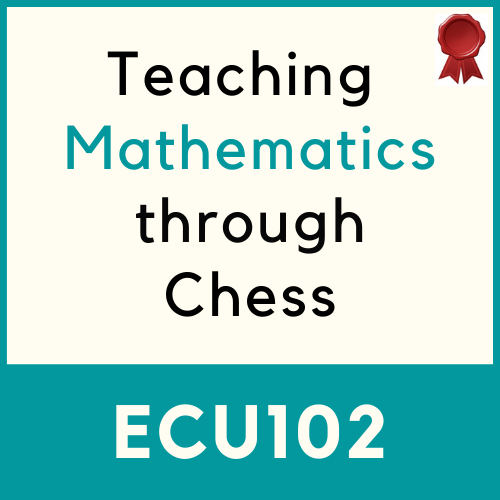
The course derives from the Erasmus+ CHAMPS Project. The purpose of the CHAMPS (Chess and Mathematics in Primary School) project is to develop a new category of ‘chess-maths’ exercises in which mathematical games and puzzles are represented in a chess format.
Games based on Chess and Mathematics proved very popular and so many of them were retained within the 50 Chess and Mathematics Exercises for Schools book.
How to teach mathematics problem-solving skills using chess?
We discussed Problem Solving Methods at great length. Useful conclusions were drawn, many of which are reflected in the Solution Methods sections of the 50 Exercises. Here is the list of the most relevant problem-solving methods we have found for Chess and Mathematics:
- look for a starting point
- trial and error
- list all possible outcomes
- eliminate impossible outcomes
- work backward from the solution
- put information into a table
- follow the rule
Topics
The course gives teachers a themed set of instructive problems based around the chess board and the moves of chess pieces. Parity and symmetry are inherent in these investigations, and many more mathematical concepts and methods will be encountered while we gently explore the fields of combinatorics and game theory.
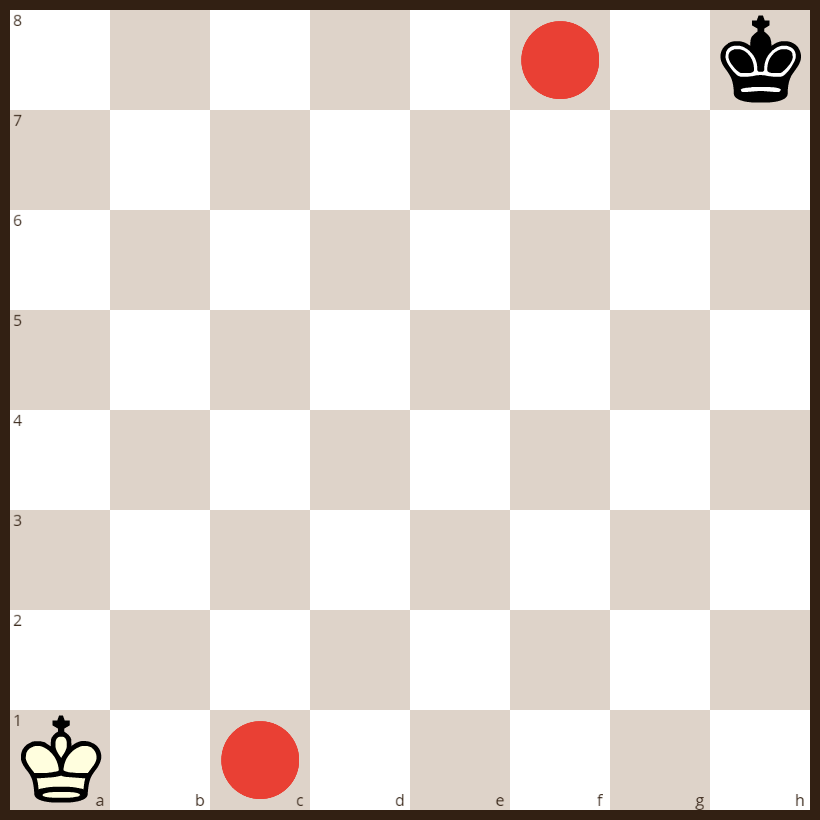
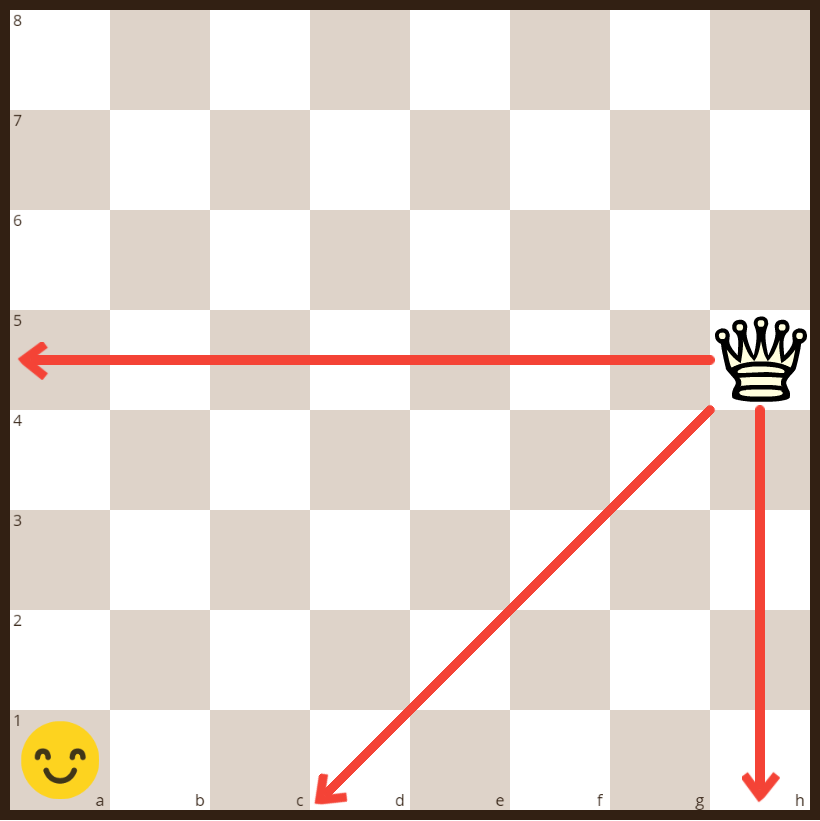
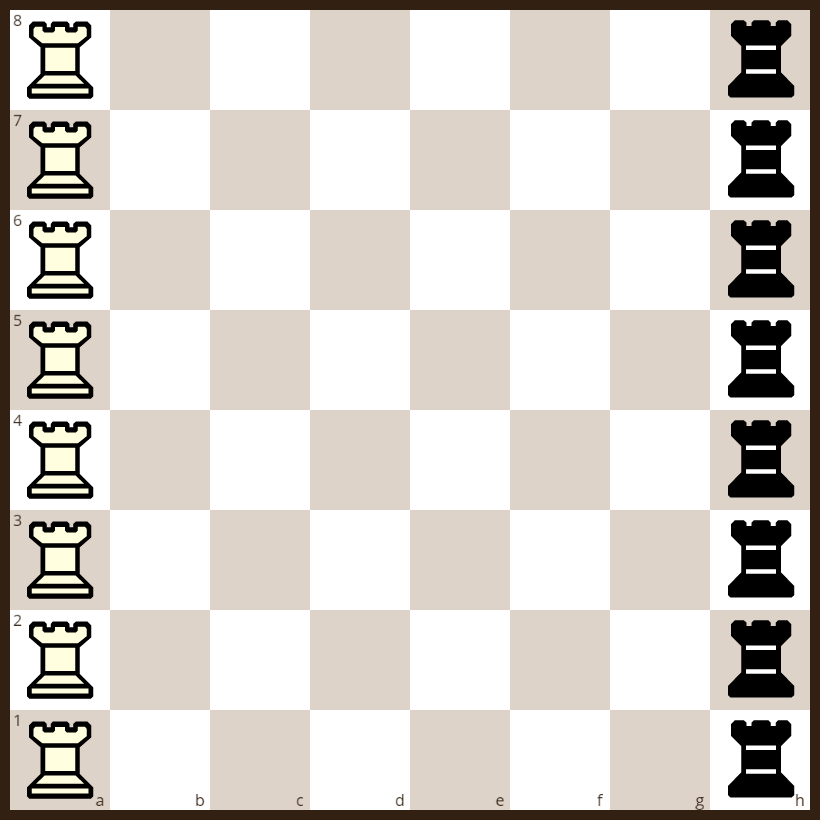
Classical Chess and Mathematics exercises are conventionally classified as falling into the area of Recreational Mathematics. They span across many mathematical fields, for example:
- Logic: the study of reasoning
- Geometry: properties of space, and shape and size of objects
- Combinatorics: counting and listing elements in a finite structure
- Graph theory: the study of graphs (set of nodes connected by edges)
- Game Theory: the science of strategy and decision making
Two examples of chess/math puzzles to use in the classroom:
Click on the images to see the explanation
Course Instructors
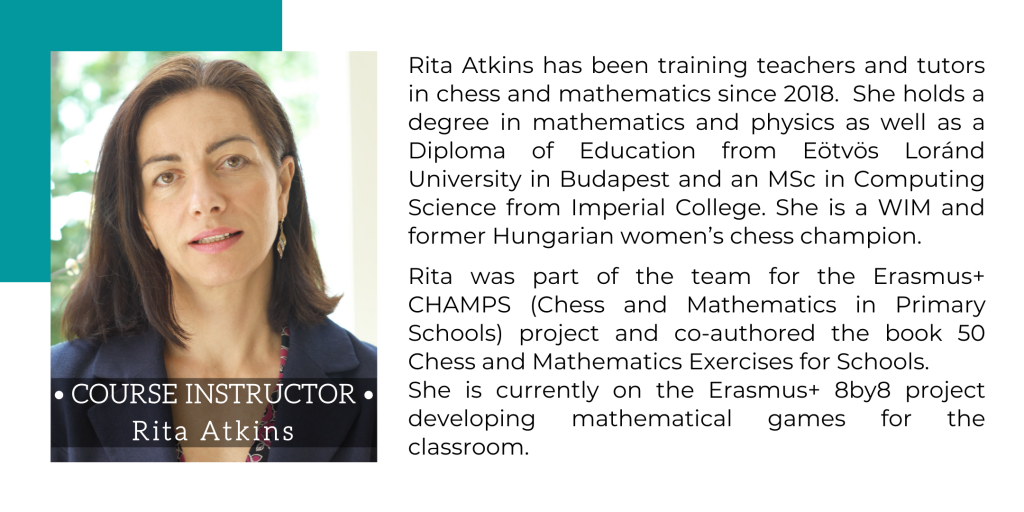
Graduates about the course:
“I attended this course mainly out of personal curiosity. It delivered everything I hoped for – and more. It was a lot of fun and provided me with useful ideas to use in my chess classes, as well as insights into maths teaching. Thank you for a highly enjoyable and instructive day. I have already successfully applied the ‘race to the corner’ game very successfully in one of my chess clubs, on the very next day after our training course! When I mentioned that we were going to be doing some ‘maths’ today, the majority of the children cheered :)”
London, December 2019, Shahanah Schmid, Chess Tutor, UK
“This course was inspirational. All the tutors were enthusiastic and very supportive. My understanding of the correlation between mathematics and chess was hugely developed. I am looking forward to supporting the children in my chess group to learn and have even more fun playing chess. I am booking on two other courses in London in November. Thank you for bringing this course to Cambridge.”
Cambridge, August 2019, Kim Dempster, Chess Tutor, UK
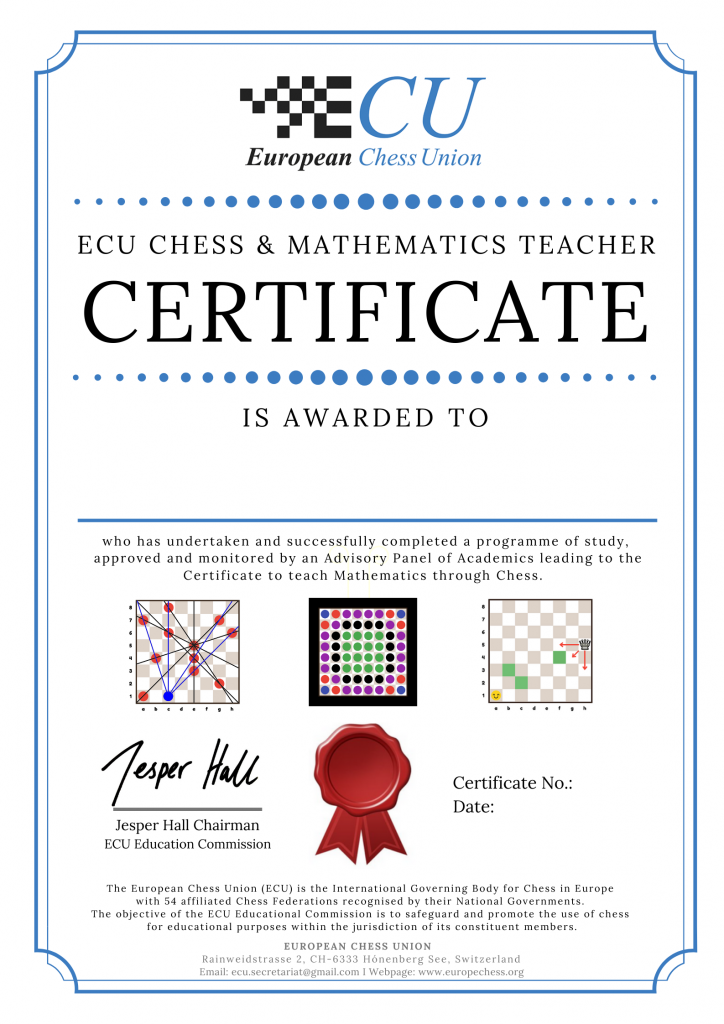
.
.
.
The Certificate is suitable for those who wish to:
- teach chess for mathematics enrichment and/or
- use chess as an educational tool primarily in the teaching of mathematics
.
.
.
